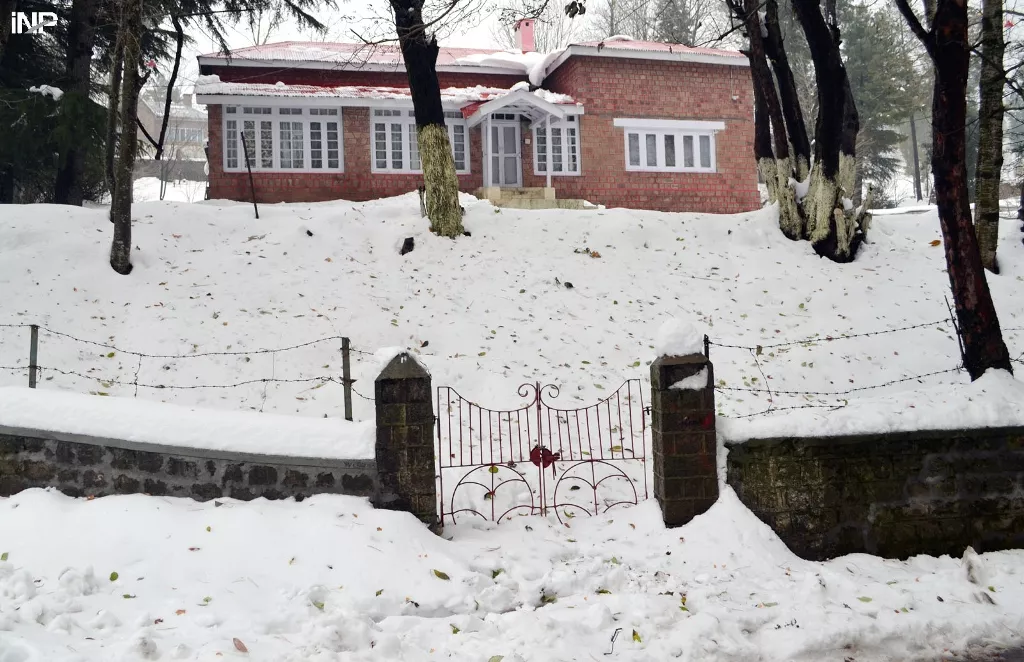NA amends election laws to stop EVMs use
Lower house of parliament also gives the nod to tweaks in NAB law
1653626666-0/image-(2)1653626666-0-640x480.webp)
The National Assembly on Thursday passed the Elections (Amendment) Bill, 2022 – removing the use of electronic voting machines (EVMs) and effectively disallowing overseas Pakistanis from voting in the next general polls.
The bill was passed with a majority vote, with only MNAs belonging to the GDA opposing it.
The legislation aims to conduct pilot projects in local by-elections before using i-voting and EVMs in the next general elections.
The session of the lower house of parliament began under the chairmanship of Speaker Raja Pervez Ashraf. The election reforms bill was tabled by Parliamentary Affairs Minister Murtaza Javed Abbasi.
Earlier, Abbasi presented a motion for allowing the bill to be sent directly to the Senate for its approval, bypassing the relevant standing committee.
The motion was also passed by the NA with a majority vote and the bill is likely to be sent to the Senate on Friday (today).
Participating in the debate on the bill, Law Minister Azam Nazeer Tarar rejected the impression that the amendment was aimed at depriving overseas Pakistanis of their right to vote.
“Overseas Pakistanis are a precious asset of the country and the government does not believe in snatching their right to vote,” he added.
On the use of EVMs, the law minister insisted that parliament was not against the use of technology, but had concerns about its misuse as the Result Transmission System (RTS) had failed during the last general elections "to favour a particular political party".
“The Election Commission [of Pakistan] (ECP) had also expressed its inability to hold elections through i-voting and EVMs in a short span of time and without proper homework. It had raised its concerns about the amendments made during PTI’s government as the stakeholders were not taken into confidence. ”
The minister added that two amendments were being introduced to revive the Elections Act 2017, enabling the ECP to “ensure free, fair, and transparent elections”.
The law minister noted that under the amendment to Section 94 of the Election Act, the commission might conduct pilot projects for voting by overseas Pakistanis in by-elections to ascertain the technical efficacy, secrecy, security, and financial feasibility of the new voting process and then share the results with the government.
He elaborated that under an amendment to Section 103 of the Election Act, the ECP might conduct pilot projects for the utilisation of EVMs and biometric verification system in the by-elections.
The law minister further said that a parliamentary committee had been formed for electoral reforms in which all political parties were represented.
Tarar said the PML-N in its last tenure -- from 2013 to 2018 -- had revised the Representation of Peoples Act, 1976 with a holistic approach after evolving consensus with all stakeholders and parliamentary parties, following which the Election Act-2017 was passed.
After the 2018 elections, the minister noted that the PTI government had suggested a number of amendments including some controversial ones as they were introduced without appropriate consultation with stakeholders and despite dozens of objections raised by the ECP.
Under the controversial amendments, he said the use of EVMs in the next general elections was introduced and passed tactfully in the National Assembly despite opposition members' severe concerns, following which the bill was sent to the Senate.
The minister said it was unfortunate that EVMs were introduced without having any technical expertise, public awareness to use them and logistics as it was not practicable to implement them at once across the country.
After the presentation of the bill before the Senate, he said the Parliamentary Committee on Electoral Reforms, headed by Senator Taj Haider, had held around 18 meetings and took input from experts, including representatives of the ECP, Free and Fair Election Network (FAFEN), Pakistan Institute of Legislative Development and Transparency (PILDAT) as well as a Spanish consultant firm that was appointed in line with the directives of Supreme Court and the countries practicing EVMs. The committee was of the view that currently, it was not possible to use EVMs on such a large scale.
He said the use of EVMs without pilot projects in areas, have a good literacy rate, was a great “risk” as it involved an additional expense of billions of rupees and training of thousands of election staffers.
Following his remarks, the bill was passed clause by clause and the amendments of the previous government on overseas voting including EVMs were deleted.
Earlier, Opposition Leader in the Nation Assembly Raja Riaz said electronic voting would not be successful in certain parts of the country. "Some areas are still without internet facilities.”
However, GDA MNA Ghous Bakhsh Mehr said EVMs were being used across the world and Pakistan should at least try using them. "If not the whole country, then use them in some areas.”
Jamaat-e-Islami lawmaker Maulana Abdul Akbar Chitrali said his party had opposed the bill during the previous government's tenure. He added that the opinion of the ECP as well as of political parties should be sought on the bill.
"This bill does not mention the powers of the ECP. It would have been better if the commission was further empowered.”
During the session, the expenses for the upcoming general elections were also shared.
According to the ECP’s estimates, the elections would cost approximately Rs47.41 billion -- around Rs15 billion for ensuring security alone.
The ECP placed the cost of conducting electronic voting at Rs5.6 billion while printing ballot papers would cost Rs4.83 billion. A sum of Rs1.79 billion would be spent on training polling staff.
Giving a province-wise breakdown, the ECP said the conducting of elections would cost 9.65 billion in Punjab, Rs3.95 billion in Khyber-Pakhtunkhwa, Rs3.65 billion in Sindh and Rs1.11 billion in Balochistan.
The law minister then introduced the National Accountability (Second Amendment) Bill, 2021 -- aimed at stopping the misuse of the law and victimisation of politicians and rivals.
Highlighting the salient features of the bill, Tarar said the NAB law was used for suppressing the voice of rival politicians.
The amendments to the bill included that the NAB deputy chairman would become acting chairman following the top official's retirement. The process to appoint a new chairman would begin two months prior to the incumbent's retirement and be completed in 40 days. Federal and provincial tax matters, as well as regulatory bodies' decisions, were removed from NAB's purview. Judges would be appointed in accountability courts for a three-year period and cases would be decided within a year. NAB would be bound to ensure the availability of evidence prior to arrest. The amendments also included up to five-year imprisonment for filing a false reference.
Speaking about the amendment bill, Tarar said all the changes ordered by the superior judiciary from time to time had been accommodated in the new legislation.
"From now onwards, NAB must complete inquiries within a period of six months.” He pointed out that the PTI government had extended the tenure of the incumbent NAB chairman by promulgating an ordinance.
“Various honest civil servants were put behind bars without having any cogent evidence. Serving judges would be appointed in accountability courts by relevant chief justices.”
Maulana Abdul Akbar Chitrali said accountability of thieves must be conducted while innocents must not be persecuted.
The bill was passed by the House unanimously. It is expected to be sent to the Senate on Friday (today).
(With input from agencies)



















COMMENTS
Comments are moderated and generally will be posted if they are on-topic and not abusive.
For more information, please see our Comments FAQ